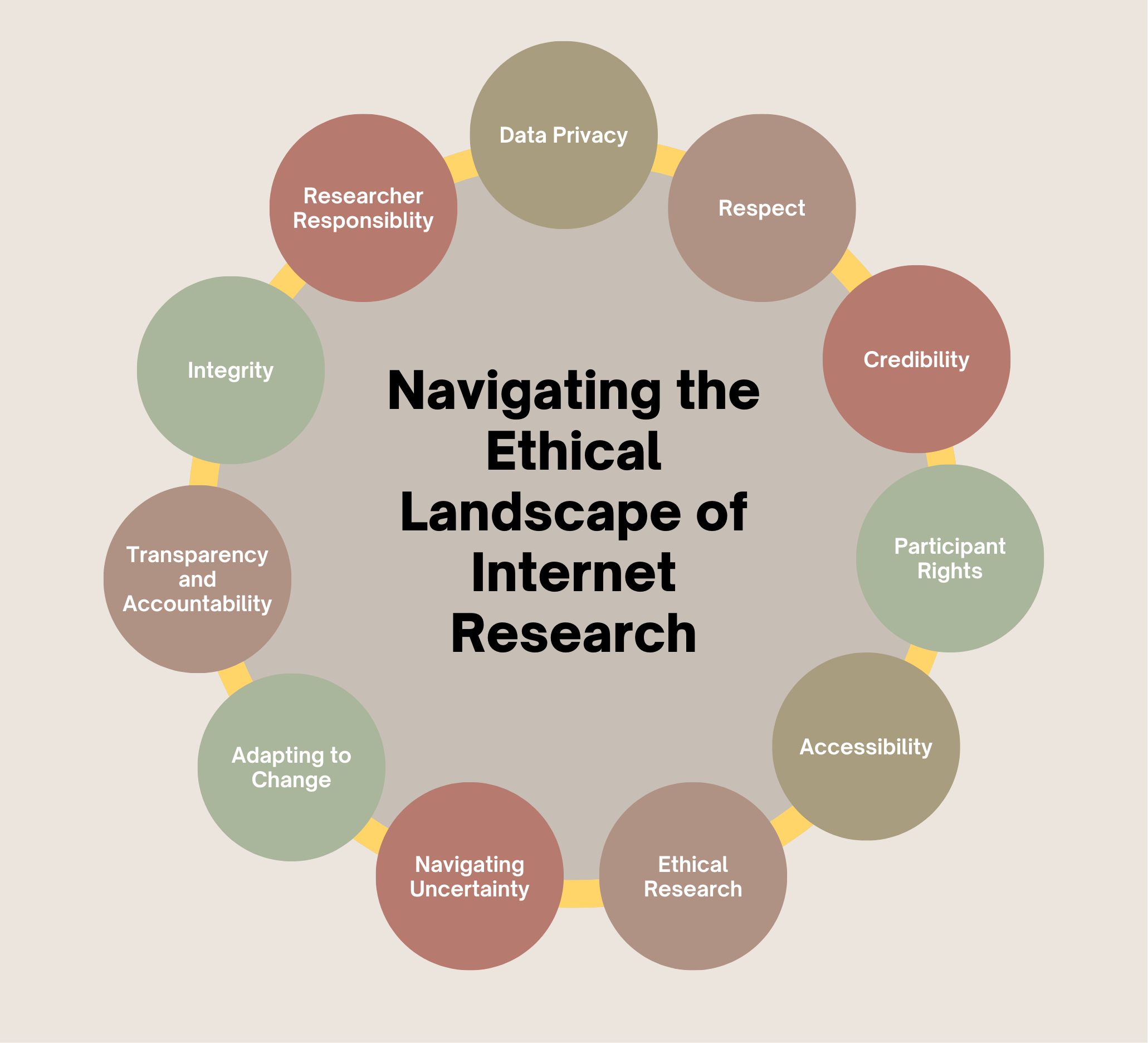Teachers College faculty, staff, and students influence the way we understand and interact in the research field. We continually ponder ethical study designs to protect the rights and welfare of human subjects and we strive to support the breadth and depth of our research community and its impact on the world. The blog series, Researcher Highlights, aims to highlight innovators and leaders who create groundbreaking studies, contribute to ethical insights, and play critical roles in study design aimed at high standards.
This edition of Researcher Highlights features an interview with Dr. Ioana Literat, Associate Professor in the Communication, Media, and Learning Technologies Design program at Teachers College. With her extensive background and interdisciplinary approach, Dr. Literat offers a unique perspective on navigating the complex ethical landscapes researchers often encounter in the digital age. Conducted by Jooyoung Jeon, a Research Writing & Ethics intern at the Institutional Review Board (IRB) office, this interview delves into the ethical complexities of internet research, particularly in the context of youth online political expressions.. This conversation aims to shed light on the vital aspects of research ethics, particularly in the rapidly evolving world of online data research.

The Intersection of Communication and Education
Dr. Literat’s academic foundation is rooted in communication, but her journey has led her to a profound intersection with education, particularly through the lens of internet studies (or internet-mediated research). She expresses a strong affinity for the interdisciplinary nature of her work, stating, “Rather than shying away from this interdisciplinarity, I really embraced it in my work. And I really positioned my work at the intersection between communication or internet studies, and education.” Her commitment explores how online environments shape and are shaped by the young minds that frequent them. Her focus on youth online political expressions is not just an academic pursuit, but a necessary exploration in understanding how the digital world impacts young people. She believes it is crucial to delve into their online activities, as these spaces are where they feel most comfortable and free to express themselves. Exploring how youth engage online not only opens new avenues for research but also contributes significantly to the field of education, particularly in understanding how young people interact with and are influenced by the internet.
The Nature of Online Data Research
Internet research is a central focus of Dr. Literat's work. She acknowledges that internet research can be viewed from two distinct angles. The first treats online spaces as objects of study, such as examining phenomena (e.g., online political expression). The second perspective views the internet as a tool for answering broader questions that are not necessarily tied to the digital space. Professor Literat expresses a strong preference for qualitative content analysis, a method that observes the youth’s natural online behaviors. She describes this method as being “a fly on the wall, rather than eliciting data from participants,” allowing her to gain insights into their conversations and expressions in their preferred communication modes. Using qualitative content analysis is particularly potent when considering the authenticity and spontaneity of young individuals’ online interactions. Through qualitative content analysis, Professor Literat can capture the essence of a “safe space for young people”. It provides a window into their world, one that is often hidden or overlooked in traditional research methods. Thus, this research approach is not just about gathering data; it is about understanding the language, nuances, and unspoken rules that govern digital spaces. Professor Literat’s work is a testament to the importance of adapting research methods to suit the evolving nature of our digital society. Her approach underscores the need for researchers to be not just observers but also learners, constantly adapting to the ever-changing landscape of online communication and its impact on the youth.
Ethics in Online Research
Delving into online research, Professor Literat highlights the critical importance of ethics, particularly when dealing with accessible and often public online data. She directly confronts a common misconception, saying, “Not everything on the internet is a free-for-all. And I feel like there's this very dangerous misconception that if things are accessible, or even if things are public, like a TikTok video or a Twitter post that you can access in your browser or on your phone, then you can do whatever you want with it.” This statement highlights the misunderstanding that all online content is free use, ignoring any ethical considerations. Professor Literat’s perspective is a clear call for researchers to adopt an “ethics of care” perspective that goes beyond mere compliance with guidelines and genuinely considers the implications of their actions. She mentions the necessity of respecting privacy and maintaining the dignity of individuals, even in anonymous digital spaces. This approach is not just about adhering to ethical norms, but also about fostering a research environment that prioritizes respect for all participants. Her insights into the ethical landscape of online research highlight the complexity and nuances required in navigating this domain. Dr. Literat stresses that while the digital age offers unprecedented access to information, it also brings a heightened responsibility to use that information judiciously and ethically.
Challenges in the IRB Process for Online Research
The conversation with Professor Literat also sheds light on the challenges researchers face in the Institutional Review Board (IRB) process, especially concerning online research. She notes that “Institutionally, for my students and students that I work with, I always invite them to submit to [the IRB] even when you're working with public data, even when you think your studies involve minimal risks.” This insight reflects the evolving nature of IRB protocols in the face of digital research methodologies. IRB specialists are available via email at IRB@tc.edu, phone at 212-678-4105, or through open-office hours to discuss research designs, and research ethics, or to field inquiries about when and how to submit a protocol for IRB review. Additionally, researchers can consult the TC IRB website for information about online research and guides about online consenting processes.
The IRB process, traditionally designed for more conventional research settings, is continually adapting to accommodate the unique demands and ethical considerations of online research. Professor Literat emphasizes the importance of engaging with IRB, regardless of the perceived risk level of a study, to ensure that all ethical considerations are thoroughly addressed. This proactive approach not only aids in safeguarding the rights and privacy of online subjects but also contributes to the integrity and credibility of the research itself. Her experience highlights a broader trend in academic and institutional settings, where the understanding of online research is still catching up with its rapid growth and widespread use. This gap presents both a challenge and an opportunity for researchers to contribute to the development of comprehensive and relevant ethical guidelines for online research.
Conclusion
The field of online research is rich with opportunities and ethical complexities. Professor Literat’s perspective serves as a valuable resource for researchers, especially those new to the field of online research. Her advice underscores the need for a careful, thoughtful approach that respects the privacy and dignity of subjects, even in the vast and often impersonal digital landscape. As we venture further into the digital age, the insights from Professor Literat also remind us of the importance of ethical considerations in preserving the integrity of research and the rights of those who participate in it.
References
Researcher Highlights: Conducting Culturally Responsive Research Across Borders
-
- Association for the Advancement of Science, Ethical and Legal Aspects of Human Subjects Research on the Internet
- Association of Internet Researchers, Ethical decision-making and Internet research
- American Psychological Association, Psychological Research Online: Report of Board of Scientific Affairs’ Advisory Group on the Conduct of Research on the Internet
- Ethical guidelines for research online, http://www.cc.gatech.edu/~asb/ethics/.
- Internet Research Guidance, Rutgers Office of Research Regulatory Affairs, https://orra.rutgers.edu/internet-research
